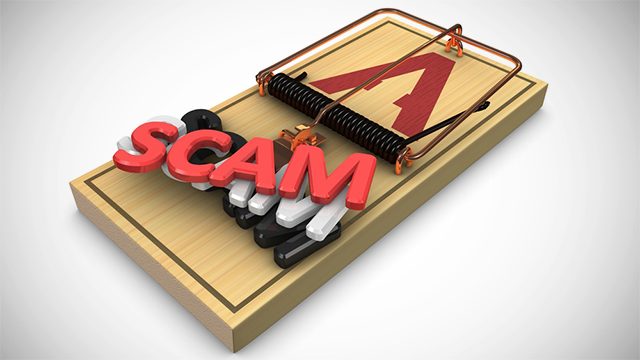SUMMARY
This is AI generated summarization, which may have errors. For context, always refer to the full article.

It has all the ingredients of the next lucrative investment – or a scam.
Depending on who you talk to, either Emgoldex Philippines is your next ticket to financial freedom, as what the solicitors are claiming; or it is your next train ride to poverty.
But it is what Multitel did in 2001.
It is what FrancSwiss did in 2007.
It is what Aman Futures did in 2012.
And it is what Emgoldex is doing right now.
The apparent Dubai-based firm recruits investors to buy gold online and pays bonuses for referring friends and acquaintances.
Emgoldex has such the same enticing pitch as what its forebearers had. Emgoldex Philippines is promising high returns: for example, a P1,000 ($22.61) investment would earn profits ranging from P5,000 ($113.05) to P10,000 ($226.11) or a P35,000 ($791.40) would return P180,000 ($4,070.04) to P360,000 (8,139.77).
The Securities and Exchange Commission (SEC) already warned the public against investing their money in Emgoldex Philippines, as it is not a registered corporation or partnership.
SEC stressed Emgoldex Philippines is not authorized to solicit investments from the public as it did not secure prior registration and/or a license or permit to solicit investments from the commission as required under Section 8.1 of the Securities Regulation Code.
Know thy scam
Generally, a scam can be classified into either Ponzi or pyramid.
At a glance, there is little difference between the two. Both are designed to fool unsuspecting (read: ignorant), or greedy investors into investing their money in exchange for hefty rewards.
The Ponzi scheme is named after the Italian immigrant Charles Ponzi who originated this type of scam. In a Ponzi type of investment, the solicitor, usually labelled as a financial expert, would solicit money from investors with the promise of extraordinary returns paid out in regular intervals. At the end of the contract period, the investor would get his principal back. This ruse encourages the investor to reinvest his money. After all, the solicitor made good on his promise.
What the investor did not know is that the money the solicitor paid him was from other investors and what he is paying the other investors is money solicited from other investors again. Trouble comes when he is paying out more than he is bringing in. By then, he simply collects the remaining money and disappears – forever.
In a pyramid scheme, however, the investor is required to recruit other investors, who in turn will recruit other investors. The amount paid is given to his recruiter. He will be able to recoup his investment through the other recruits he can bring in for the company.
Oftentimes, the investment will be justified as purchases for some revolutionary product; and the amount is but a small sum to partake of. In time, the pyramid will collapse as there are only a finite number of people who can join this scheme.
Red flags

A scam like Emgoldex Philippines has 4 tell-tale signs that should send investors running in the opposite direction:
High-return for little or no risk
The basic tenet in investing is the higher the return, the higher the risk as well. High returns do not constitute a scam, but if the solicitor promises you such guaranteed returns with absolutely no risk – and bets his entire life savings on it – turn him down.
All businesses and investments require a certain degree of risk. The only thing guaranteed here is that you will lose your money in the end. Remember the caveat: If it is too good to be true, then it probably is.
Complex product or portfolio
You would often hear jargon as part of their explanation on how they make money. The premise is that the more highfalutin the words are, or the more complex a product is, the more unconvincing the investment is.
If the solicitor cannot translate his methodology or product in layman’s term, then he is more likely covering something up. Most of the time, people are afraid to ask questions. Do not be afraid. It is your money at stake.
Pressure to invest now
Scammers will try to coax you into investing now. They will not allow you to “think about it”.
They will tell a (probably fictitious) story of how another person, who was pretty much in the same predicament as you, found a jackpot in this investment scheme. And that if he could rise out of poverty, then so could you.
It is not registered nor licensed
Worse, they do not have any physical office. Even if they do, it is somewhere where no one could verify its authenticity – even with Google maps.
Under Philippine law, a legitimate partnership or corporation should be duly registered with SEC. Also, any solicitation of funds from the public should have a license to do so under Section 8.1 of the Securities Regulation Code. Even their solicitors need to have a specific license to offer their investment.
The purpose of being registered is to have a governing body regulate operations. No registration, no license, no solicitation. No excuse.
A scam comes in any form or size: equity stakes, precious metals, oil, foreign exchange – anything that could lure investors has been and will be thought of.
But by equipping ourselves with knowledge, we will even the odds already. – Rappler.com
 Kendrick Chua is a registered financial planner of RFP Philippines. He writes regularly about personal finance. He is also a Chinese language instructor, TV host, free runner, and violinist. To learn more about RFP, you may email info@rfp.ph.
Kendrick Chua is a registered financial planner of RFP Philippines. He writes regularly about personal finance. He is also a Chinese language instructor, TV host, free runner, and violinist. To learn more about RFP, you may email info@rfp.ph.
US$1 = P44.23
Charcoal painted gold and trap images from Shutterstock
Add a comment
How does this make you feel?
There are no comments yet. Add your comment to start the conversation.